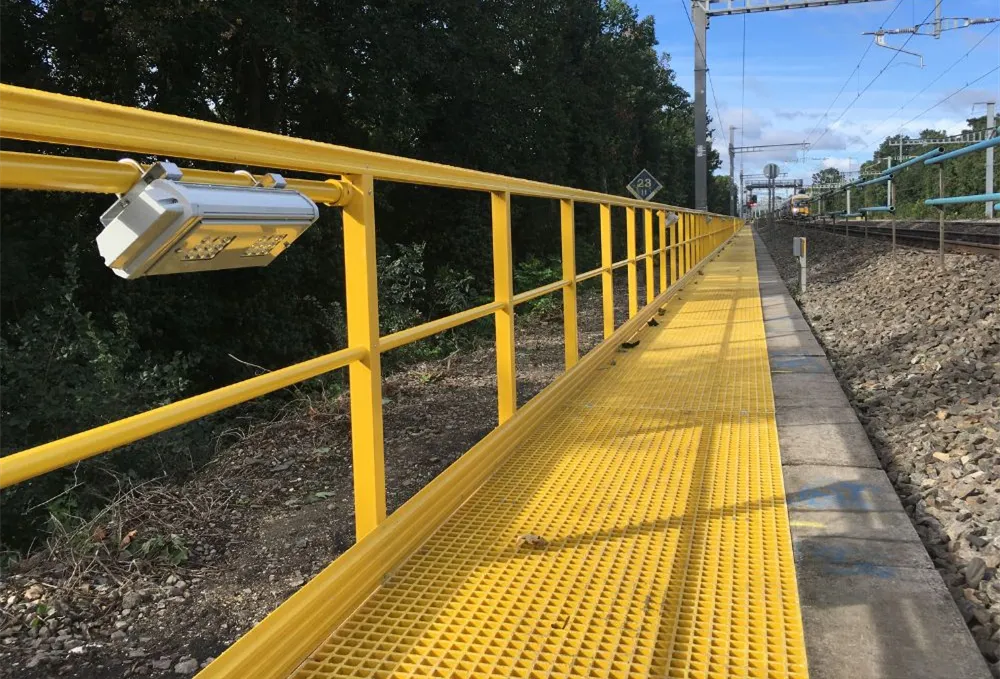loading...
- No. 9, Xingyuan South Street, Dongwaihuan Road, Zaoqiang County, Hengshui, Hebei, China
- admin@zjcomposites.com
- +86 15097380338
- Welcome to visit our website!
Water Softening and Filtration Solutions for Improved Household Water Quality
Understanding Water Softeners and Filter Systems
Water quality is a significant aspect of our daily lives, affecting everything from our health to the longevity of our appliances. In many households, hard water issues and contaminants in the water supply make the installation of water softeners and filter systems not just beneficial but essential.
What is Hard Water?
Hard water refers to water that contains high levels of calcium and magnesium ions. While not hazardous to health, hard water can lead to various problems. It can cause scale buildup in pipes and appliances, reducing their efficiency and lifespan. Additionally, it can affect the taste of water and the effectiveness of soaps and detergents, leading to increased usage and costs.
The Role of Water Softeners
Water softeners address the hardness of water by using a process called ion exchange. The softener contains resin beads charged with sodium ions. When hard water passes through the softener, the calcium and magnesium ions are attracted to the resin beads and exchanged for sodium ions. This process effectively reduces the hardness of the water, resulting in soft water that is gentler on skin, hair, and household fixtures.
The benefits of soft water are numerous. It enhances the efficiency of soap and detergents, allowing you to use less product for the same cleaning power. This not only leads to cost savings but also reduces environmental impact. Soft water also prevents scale buildup in pipes and appliances, reducing maintenance costs and prolonging their lifespan. Moreover, many users report softer skin and shinier hair when using softened water.
water softener and filter system

Importance of Water Filtration
While water softeners deal primarily with hardness, water filtration systems focus on removing impurities and contaminants from the water supply. Many water sources contain various pollutants, including chlorine, lead, bacteria, sediment, and volatile organic compounds (VOCs). A good filtration system can significantly improve water safety and taste.
There are various types of water filtration systems available, including activated carbon filters, reverse osmosis systems, and UV purification systems. Activated carbon filters are great for removing chlorine and improving the taste of water, while reverse osmosis systems can eliminate a broader range of contaminants from the water, including heavy metals and salts. UV filtration systems utilize ultraviolet light to kill bacteria and viruses effectively.
Combining Softeners and Filters
Many homeowners opt to install both water softeners and filtration systems to achieve optimal water quality. While softeners enhance the usability of water, filtration systems ensure that the water is safe for consumption. Together, they provide comprehensive solutions for addressing both hard water issues and water contamination.
Conclusion
Investing in a water softener and filter system can lead to numerous advantages for your home and family. By upgrading to softened and filtered water, you're not only protecting your plumbing and appliances but also promoting better health and well-being. In a world where water quality is under increasing scrutiny, these systems offer peace of mind, knowing that you’re providing the best for your household. Whether you’re dealing with the effects of hard water or concerns about water safety, considering both a water softener and a filtration system can make a significant difference in your daily life.
-
The Rise of FRP Profiles: Strong, Lightweight, and Built to LastNewsJul.14,2025
-
SMC Panel Tanks: A Modern Water Storage Solution for All EnvironmentsNewsJul.14,2025
-
GRP Grating: A Modern Solution for Safe and Durable Access SystemsNewsJul.14,2025
-
Galvanized Steel Water Tanks: Durable, Reliable, and Ready for UseNewsJul.14,2025
-
FRP Mini Mesh Grating: The Safer, Smarter Flooring SolutionNewsJul.14,2025
-
Exploring FRP Vessels: Durable Solutions for Modern Fluid HandlingNewsJul.14,2025
-
GRP Structures: The Future of Lightweight, High-Performance EngineeringNewsJun.20,2025
